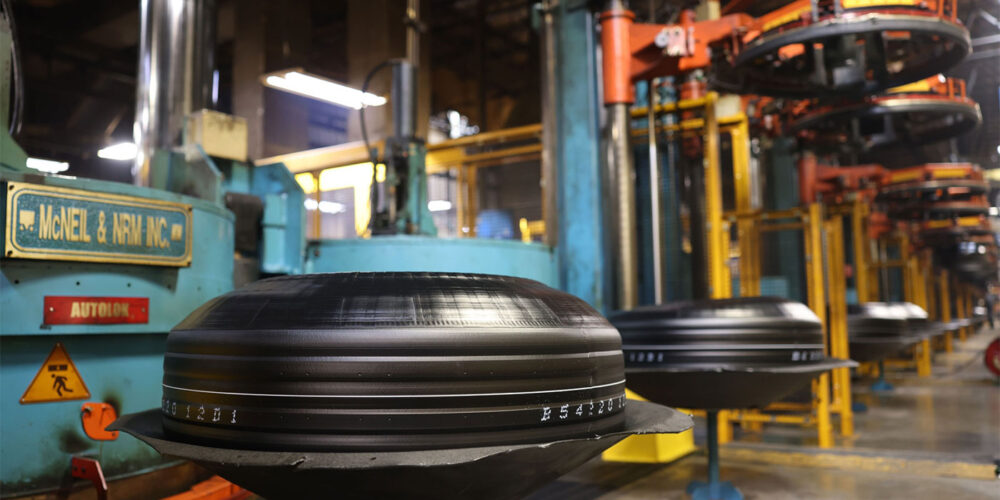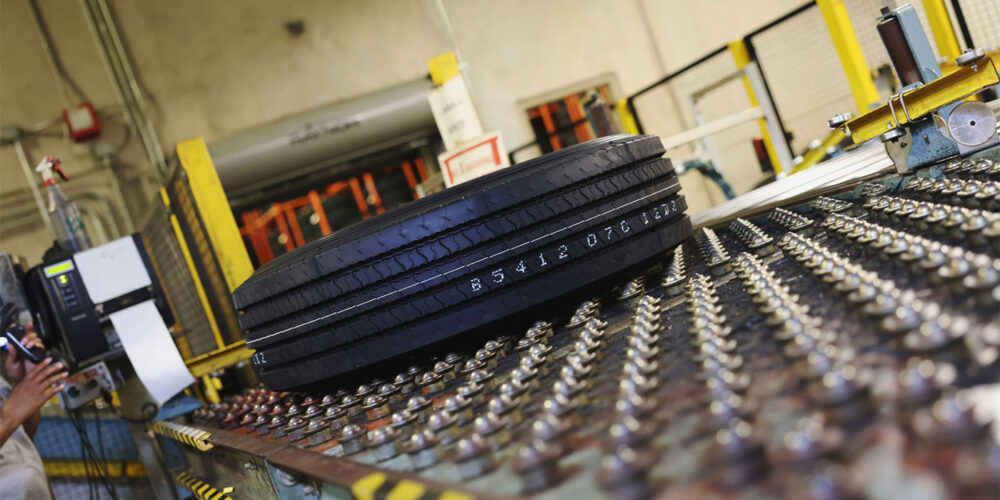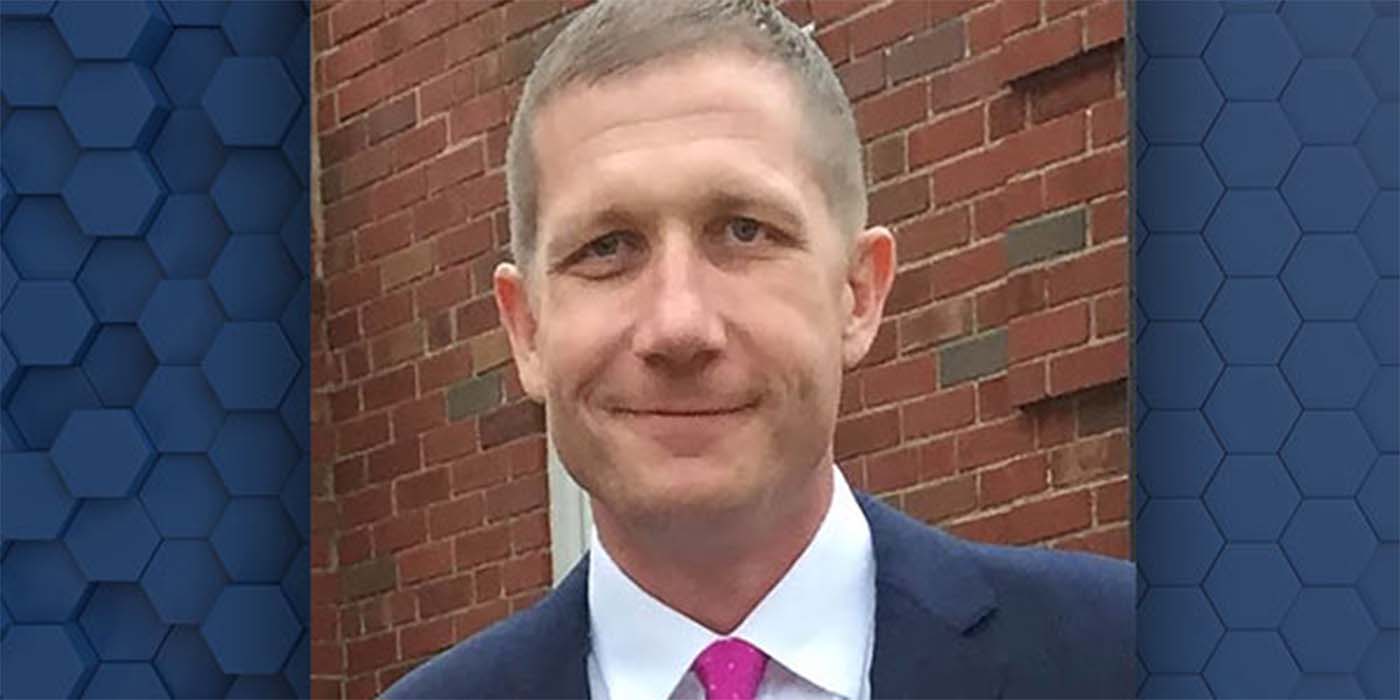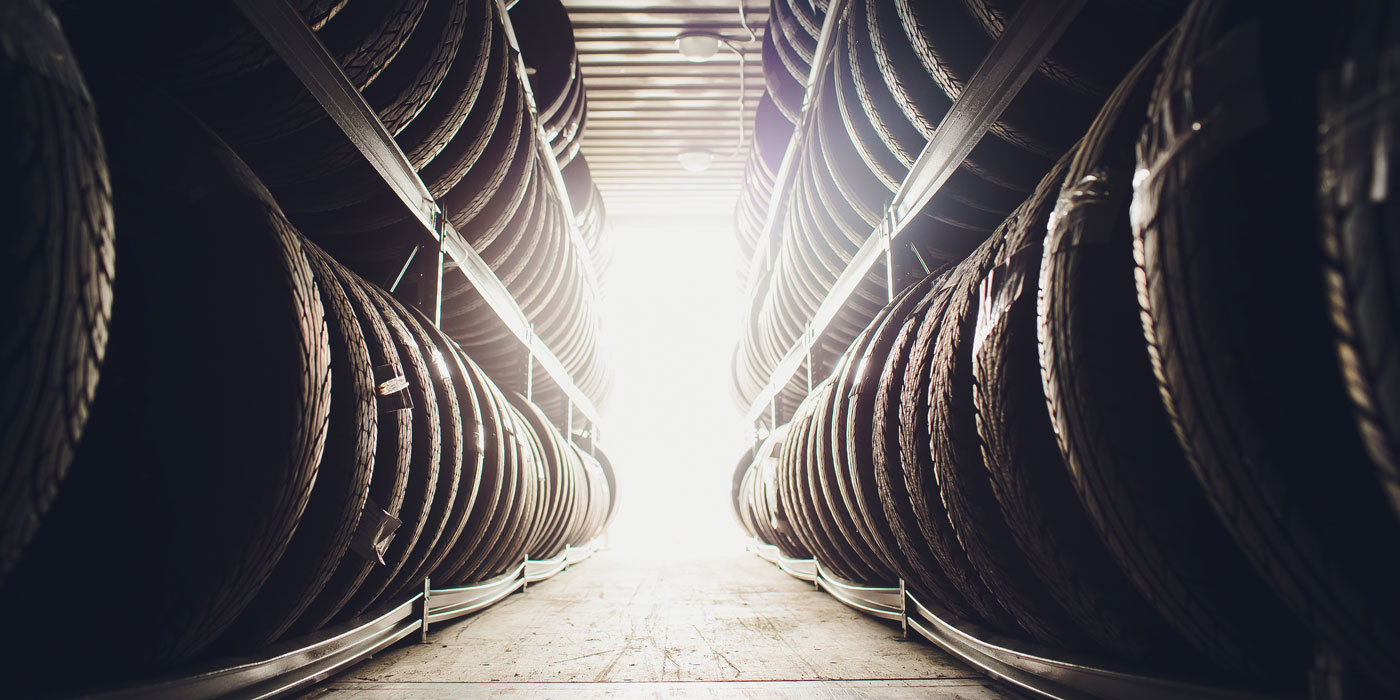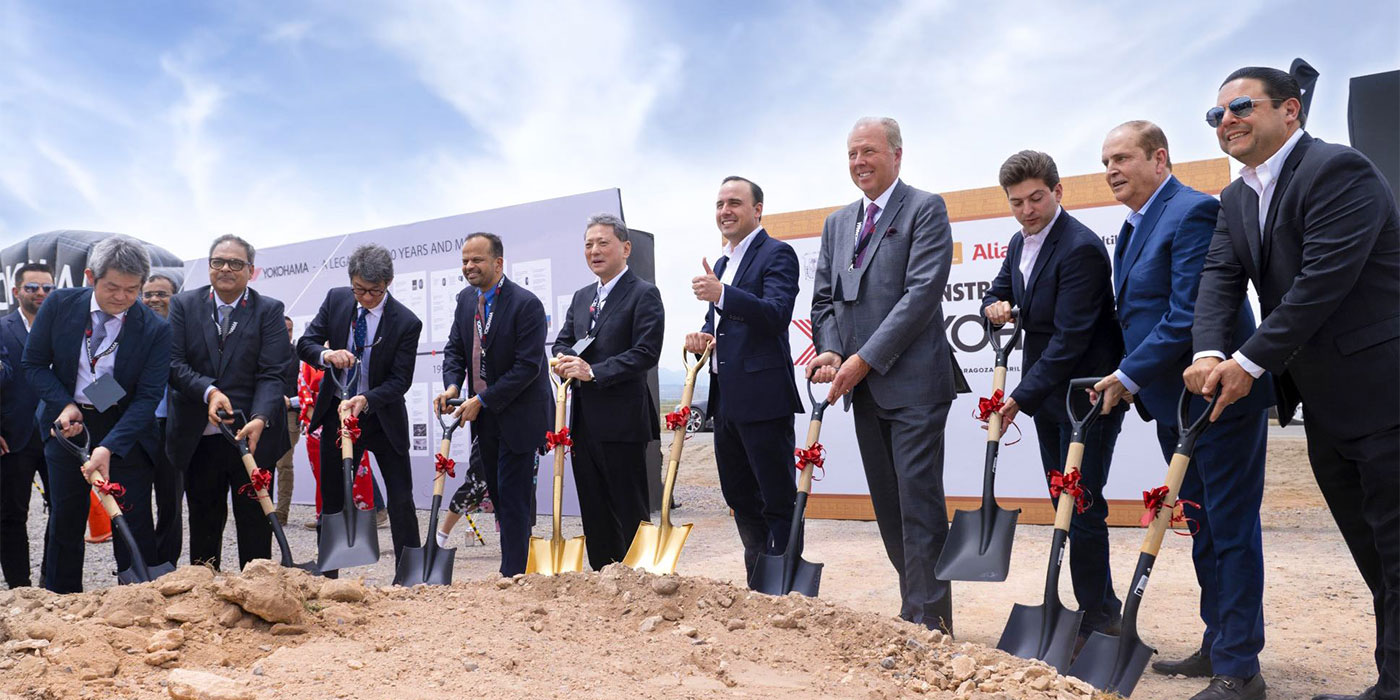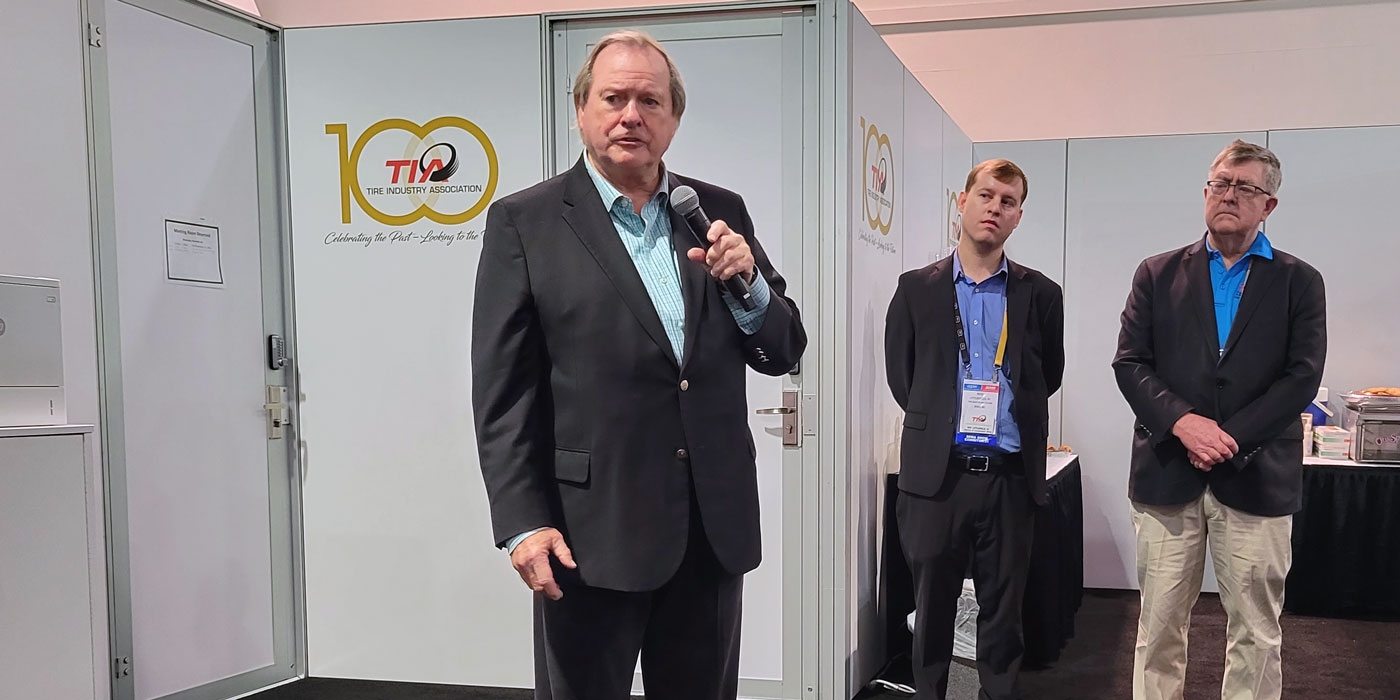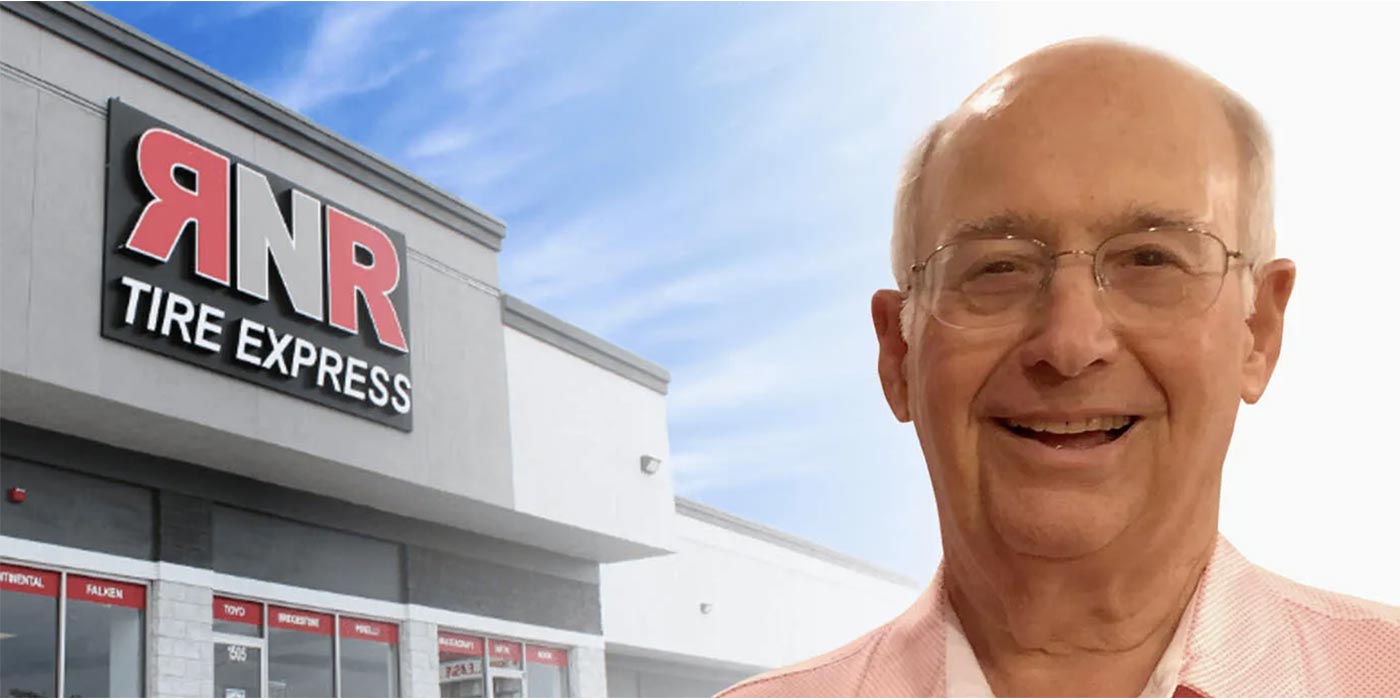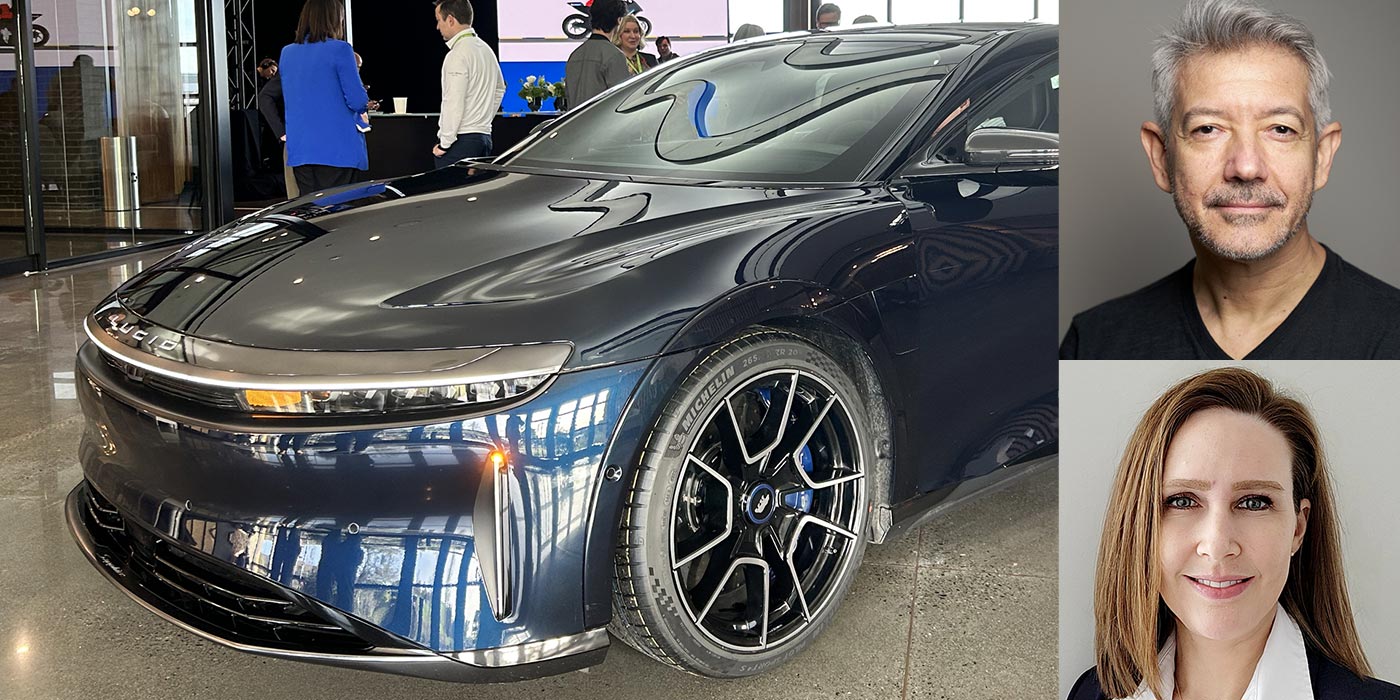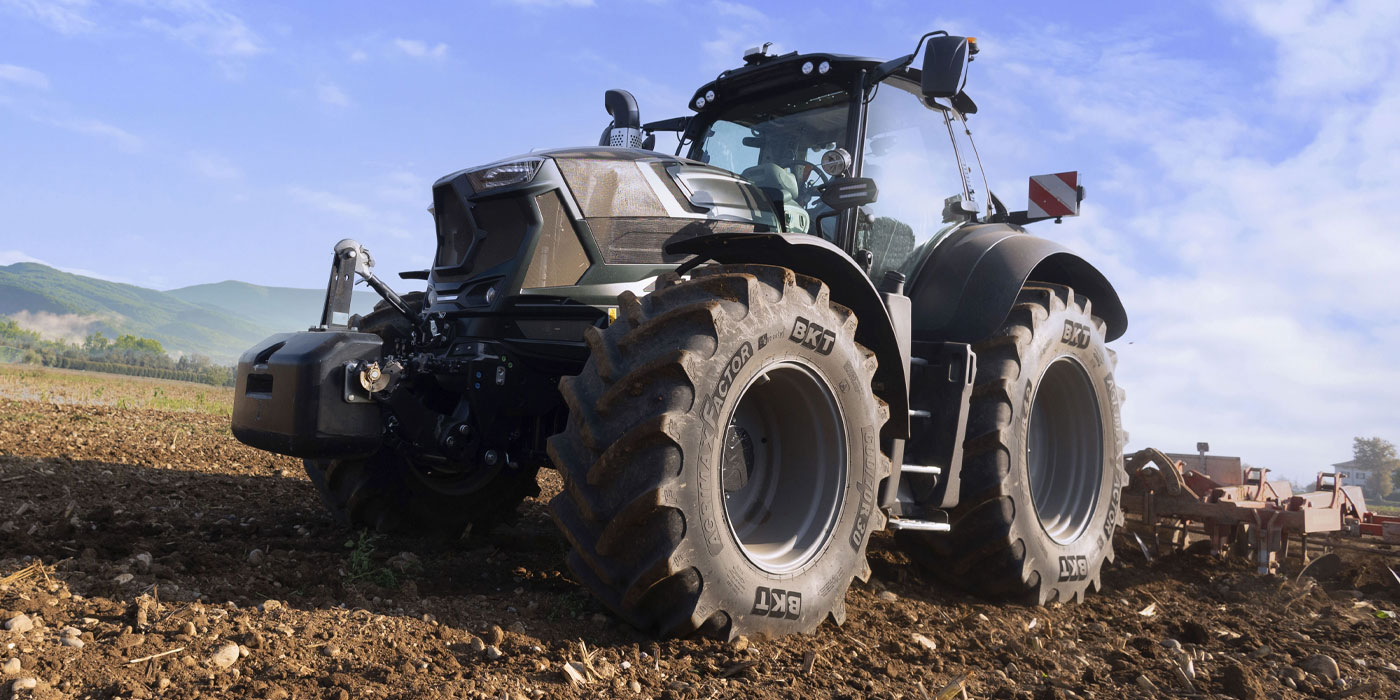In celebration of a decade of manufacturing commercial truck tires at the Yokohama Tire Manufacturing Mississippi (YTMM) plant, Yokohama Tire CEO and President Jeff Barna announced during an event held for industry executives and local dignitaries that the plant is the No. 1 producer of Yokohama commercial tires.
“It’s highly gratifying to be here celebrating this moment, knowing that this plant is on an upswing,” Barna said at the plant in West Point, Miss. “Production levels are hitting records, the quality level is superb, and the employee morale and the culture here is on the rise as well.”
Established in October 2013, the YTMM plant now produces around 800,000 commercial tires total in sizes 22.5 in. and 24.5 in. annually. Barna added that the plant set a new production record in 2022, and is on its way to setting another record in 2023.
He also emphasized the pivotal role of the plant in reaching projected revenues of $8 billion by 2024 – approximately $6.5 billion from Yokohama and another approximately $1-1.5 billion from the company’s May acquisition of Trelleborg Wheel Systems.
“A manufacturing plant operation of this size is a massive undertaking and one that requires literally hundreds of people who contributed to site selection, architecture, blueprinting, financial planning, organizing, engineering assets, machinery installation, personnel hiring and training,” he said. “The plant you are seeing today utilizes some of the most state-of-the-art, automated tire-building technology known to our industry. The strength of our brand and the market relies on the commitment to manufacture tire products at the very highest quality levels available to this industry.”
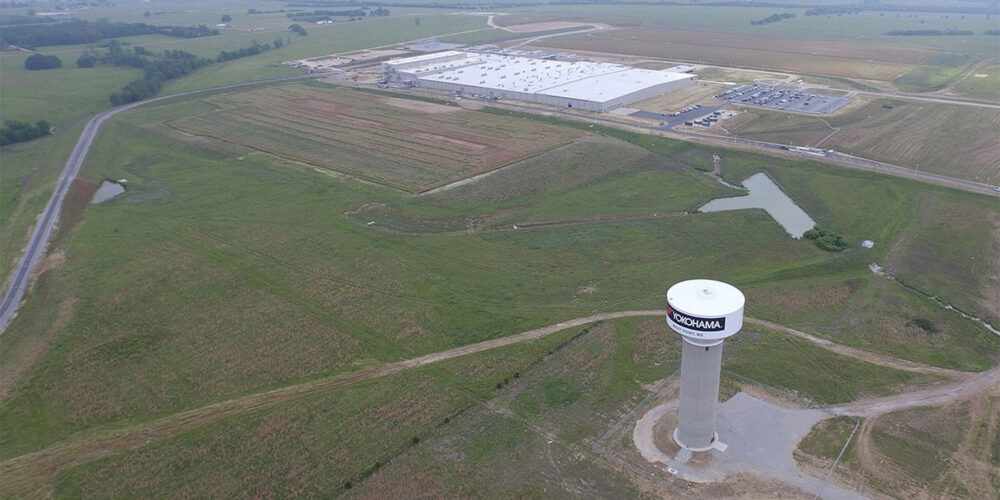
Community Development
YTMM’s success isn’t confined to its production floors; it can be felt throughout the local community as well.
“I believe that our unemployment rate [in Clay County] in 2012 was somewhere upwards of 22%. Today, Clay County’s unemployment rate is approximately 4%,” said YTMM plant manager Philip Calhoun. “This is largely attributed to the economic footprint that Yokohama has made in this community. They have produced approximately 900-plus jobs, which has caused a positive ripple effect on our local community.”
Calhoun said he has made it his personal mission to develop the workforce in Mississippi and get students embedded in the manufacturing process so they don’t “run away from home thinking that they have to get employment somewhere else.” To help facilitate this, YTMM has partnered with local high schools to allow students to begin working at the plant and understand the opportunities that exist there. The company also sponsors programs at Mississippi University to help develop the engineers of the future.
“The bottom line is that you have to take the people through the proper training and expose them to certain aspects of the business so that you can have a pipeline of succession planning for your company,” Calhoun said. “You can’t wait for someone to fall out of the sky. You have to develop that network, and you either have to spend all types of money to pay headhunters to find certain people or establish that network internally.”
He added YTMM is currently working to establish an apprentice training program.
“I want to establish that you can give students an opportunity to make a good, livable wage without going the university path. Everybody wants to know what college you’re going to, and it’s been that way with a whole generation. It’s a national problem.”
Looking to the Future
The YTMM plant itself takes up around 100 acres, but the company built in room on the site for as many as three additional plants. Calhoun said there are no immediate plans to build new plants, but he’s open to the idea.
“If the market demands more tires or different types of tires, we’re ready, willing and able to jump in and say that we want this business right here,” he said.
According to Stan Chandgie, executive vice president of sales and sales operations at Yokohama, that market demand could very well be a separate tire manufactured specifically for electric commercial trucks in the future – and perhaps even a tire built for autonomous commercial trucks as well.
“Obviously, everybody’s trying to solve for the range anxiety that comes through the ecosystem, and there’s an even bigger need around increasing mileage. On the consumer side, that’s where we’re focusing our efforts,” Chandgie said. “We remain deeply focused on the needs of the market as of today, but we’re always paying attention to what’s coming. You have to. Down the road, there will be all kinds of challenges or obstacles that we’re all going to have to solve for the consumer, the fleets, the dealers and the manufacturers. All of that is coming into play.”

